A little while ago, I was contemplating putting my motorcycle into storage for six months while I went travelling domestically. To prevent it from getting rusty while in storage, I did some research and discovered ACF-50. This is my review.
The problem with putting something into storage where I live is that it’s a bit humid. So I was concerned about corrosion on the chain, spokes, and body of the motorcycle.
I don’t have the problem of salty roads from snow, because it doesn’t snow where I live. But salt is also a problem that many motorcyclists face as they ride through winter — how to prevent their motorcycles frames and chains from getting rusty as salt is constantly flung onto them.
If you go online and look for rust prevention products, or if you go to an auto parts store and browse the aisles for the same, you’ll see all kinds of products that make magical claims. They all say the same things:
- “Lifts rust away from the metal”
- “Protects rust from forming”
- “Bonds to the metal’s surface”
- etc. etc.
It’s all just marketing speak. To a degree, I could say those things about a squirt of olive oil.
And then there are people who suggest all kinds of other things, like coating your motorcycle with WD-40, or oil. Could there be truth to that?
Digging around some forums for older motorcycles (like classic BMW and Ducati examples) I found about a product called ACF-50. It’s a little hard to get (in that it’s hard to get on Amazon in the US), but I got my hands on some and am eager to tell everyone else about it.
You can get on Amazon (where it’s often sold out in the US, but more available in the UK), and more reliably on eBay.
(I get a tiny commission on sales, but consider it a tip for writing this and many other articles… and neither of us can get a discount, anyway!)
ACF-50 is very cheap. Last I checked it was $30-40 a bottle for a supply that would last for years (or a few motorcycles for one year).
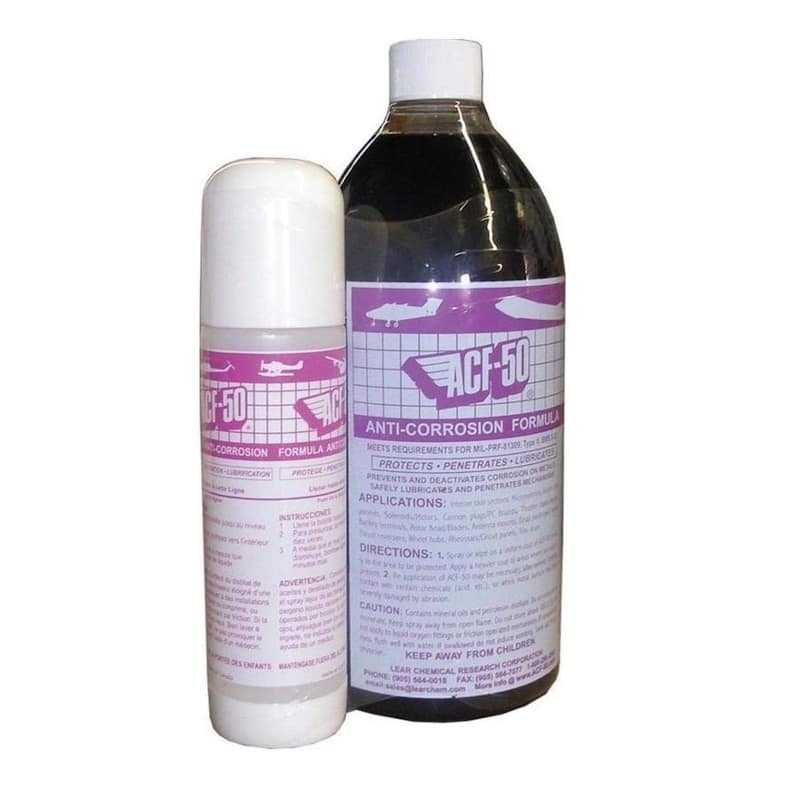
Are you obsessed with motorcycles?
Well, I am. That’s why I created this site — as an outlet. I love learning and sharing what others might find useful. If you like what you read here, and you’re a fraction as obsessed as I am, you might like to know when I’ve published more. (Check the latest for an idea of what you’ll see.)
What is ACF-50?
Literally, ACF-50 stands for “Anti-Corrosion Formula”… 50. Why 50? Well, the first 49 were terrible! Well, number 49 was nearly there, but 50 was a solid improvement, I understand.
ACF-50 is a product by Lear Chemical Research, an aviation chemical research company that nobody has heard of unless you’re in aviation technology. It doesn’t seem to be related to Learjets, but the name still sounds cool as it implies a connection. Either that or with King Lear. Since Lear Chemical Research designs products for aircraft, the same is true of ACF-50 — it’s designed for use on airplanes. And helicopters, and space shuttles.
The ACF-50 product is a thin fluid film which you apply every year to your aircraft (or your ground-operated aircraft, your motorcycle). The way they describe it is that it “penetrates through corrosion deposits to the base of the cell where it emulsifies and encapsulates the electrolyte, lifting it away from the metal surface”.
As I said above, marketing terminology all sounds the same in rust-prevention products. I swear they all say they separate rust from the metal and lift it away. So how do we know if ACF-50 works? Well, because I haven’t used it long, I rely on what other people say.
What people say about ACF-50 — Online reviews
I personally have only been using ACF-50 for one year. That’s not very long! So I can’t really say “I’ve been using it for years and I swear it works”. But other people do.
Here’s what other people say about it.
“I’ve done over 3,000 miles since I got my 848 last December… the majority of these miles were commuting on damp, salt-covered, horrible roads. I was slightly apprehensive about salt damage. However, I liberally applied ACF50 when I bought the bike, used it liberally throughout the dark months, and crossed fingers. … I couldn’t spot a single bit of actual corrosion. Very happy – I love ACF50.”
Ducatiforum.co.uk commenter (slightly edited for brevity), on a Ducati 848
“I swear by it and dose my airheads in it every year. It’s the only product I’ve found that protects against our salt laden roads.”
ADVRider commenter
“After 9 days in, the first 2 without any salt, the remaining 7 with ACF50 has held up the best, but it’s not as easy to apply as the others, the surface has to be clean.”
The Triumph Forum, corrosion test thread
Another thing I like about ACF-50 is that it’s poorly marketed. It’s not being flogged at your local dealer or in online stores. It’s kind of hard to get. To me, this implies that it’s not snake oil… someone is always trying really hard to sell you snake oil.
How to use ACF-50
You can get ACF-50 as an aerosol, which is easier to apply but more expensive, or a liquid with a pump-trigger, which is cheaper and also still not difficult to apply.
The advantage of the liquid + pump trigger (aside from the cost benefit!) is that it’s easier to ship quickly. It’s just a liquid, rather than a pressurised gas canister, so you can get it on Amazon easily.
You get an aerosol, or a full pump trigger fill, and apply it to the metal parts of your motorcycle. It’s not damaging to fairings and rubber hoses, but there’s no point applying it to them. So if you have a sportbike you have to take the fairings off first.
ACF-50 spreads itself and sticks to the metal. It doesn’t stay “sticky”, but it is a magnet for dust. In other words, if you protect metal with ACF-50, you’re going to have to wash it off thoroughly after the winter is over.
The reward is a clean motorcycle at the other end of winter, but it doesn’t come without work. You can clean it off withj ust a water washer and light pressure (without any soapy cleaners that will remove the ACF-50), or SDoc100 or another light cleaner, then water.
Rust test on ACF-50
One review I read about ACF-50 which is on an ancient website (and which I suspect will go offline soon) was about a rust prevention test on ACF-50.
In the author’s words, this is a straightforward test.
- Got two pieces of steel wool and hung them up. He chose steel wool because it rusts very easily.
- He sprayed one liberally with ACF-50, and let it drip off
- He then sprayed them liberally with salt water, and recorded results after six days.
- Then he sprayed them with more salt water intermittently for ten days, and recorded results after another 30 days.
Here are the results
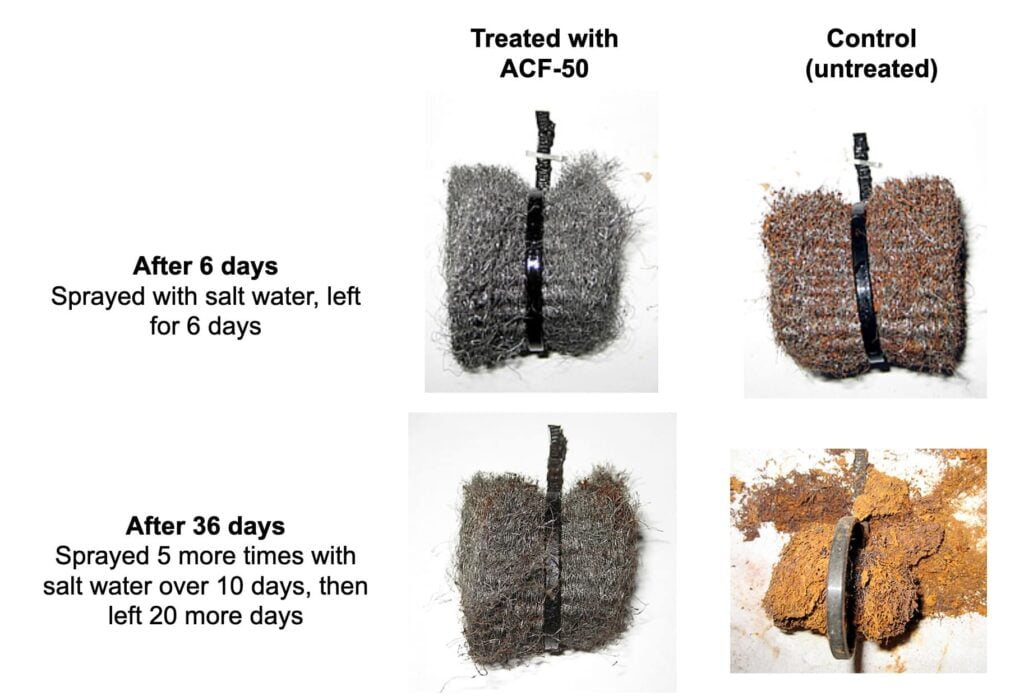
In a second test, the same engineer benchmarked ACF-50 against WD-40 (a water repellant), FS 365 by Scottoiler, and a control sample.
In this test, he
- Used a sheet of steel
- Scoured the steel gently with an angle grinder
- Applied the products (then re-applying the FS-365 the next day as it had not dried evenly)
- Applied salt water every few days for a month
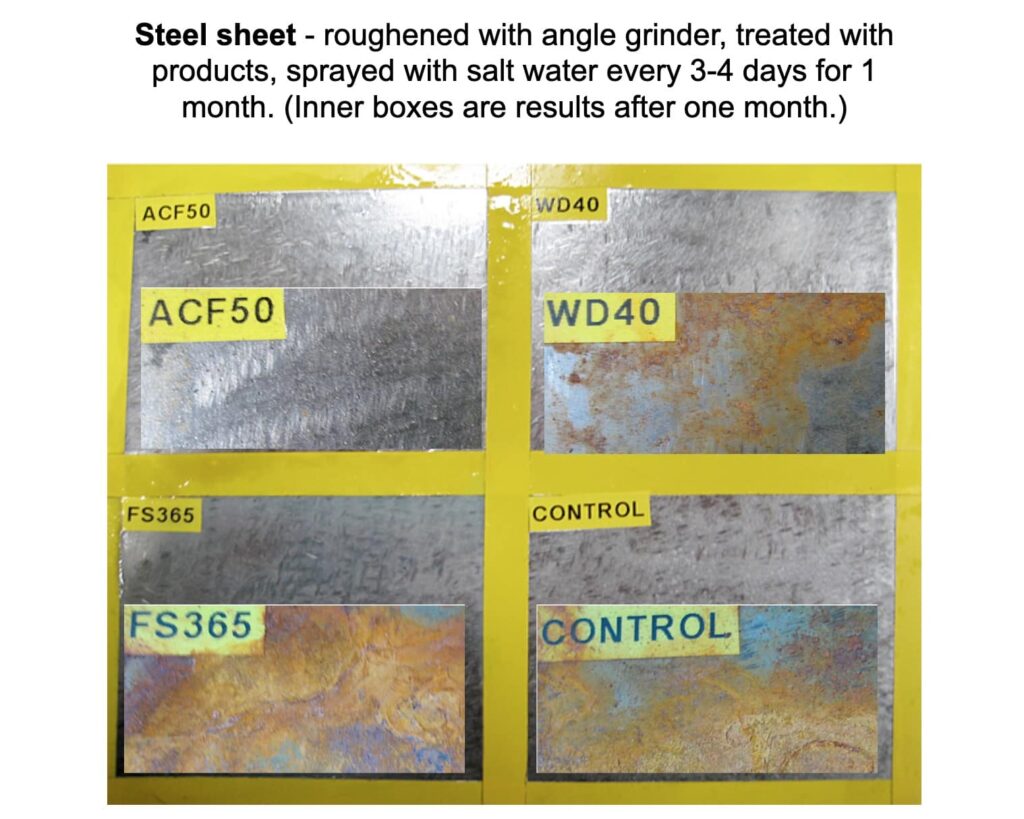
Incredibly, FS 365 seems to make the rust a bit worse than the control. Weird. I like the Scottoiler product (the oiler of chains), so it seems strange that their product performed so poorly.
There are some other corrosion inhibitors out there. But for now, ACF-50 is the one I’m going to use.
Where to buy ACF-50
Depending on where you are in the world, it might be hard to buy ACF-50 for a few reasons.
I bought it on eBay from an aircraft supplier locally. It came in liquid form with an atomizer, rather than a spray can. Fine by me!

![Gifts for Motorcycle Lovers — A Guide by the Obsessed [2022 Update] 4 Gifts for Motorcycle Lovers — A Guide by the Obsessed [2022 Update]](https://motofomo.com/wp-content/uploads/2021/11/ideas-for-gifts-for-motorcycle-lovers-woman-768x480.jpg)
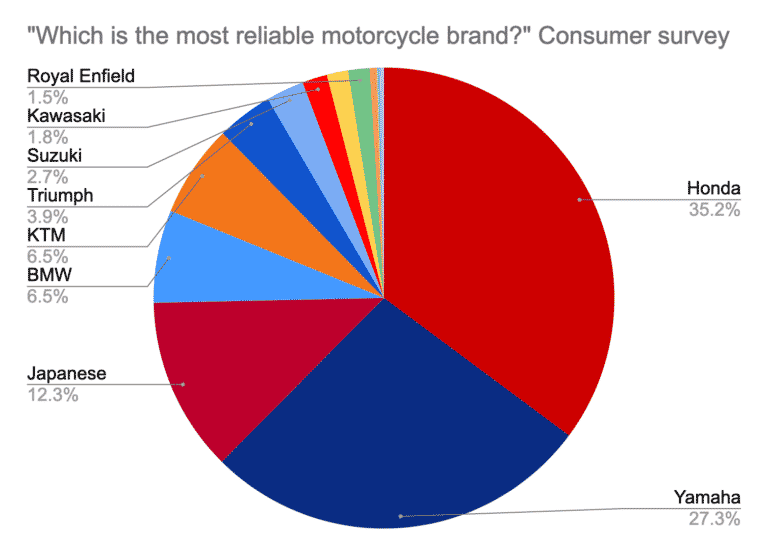



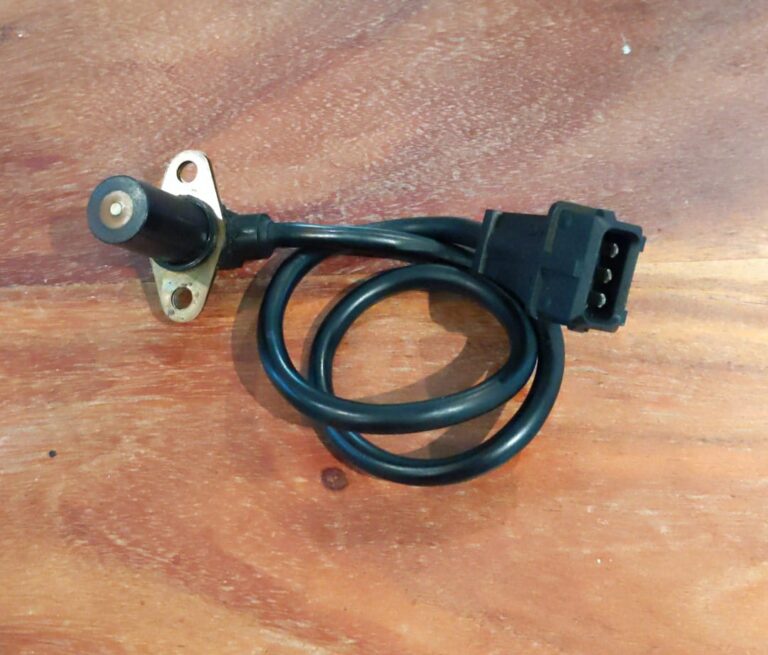
Interesting article thanks. If using a spray bottle with acf50 in it, it is suggested you put the spray bottle in hot water for 10 minutes. This then makes the spray finer.